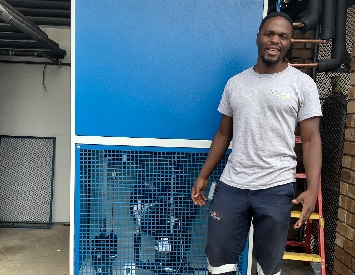Online learning suits self-starters and people who really want to learn, but it can be a challenge because students need to have discipline and self-motivation in establishing effective learning and study methods. As we launch into a new financial year and, for many, a new academic semester, it is time to review, revisit, and refine your approach to learning.
When looking for methods of learning to improve your retention of new concepts and academic results, it is important to consider tried and tested methodologies alongside new ideas. Gamifying studies, decluttering a work/study space, creating mental pathways for recall, and trying out new time management methods are effective strategies in ensuring your academic success.
Learning How to Learn
Barbara Oakley is an American Professor of Engineering at Oakland University and McMaster University who delivers courses providing practical advice on tackling daunting subjects and developing learning practices related to science, technology, engineering, and mathematics. She is most famously known for the “Learning How to Learn” course that she co-created with Terrence Sejnowski and the University of California, San Diego. Over 1.8 million students have taken this course on Coursera. Alongside her book, ‘A Mind for Numbers,’ it outlines three steps (or tips) to develop higher learning.
Her first tip is Create Mental Scaffolds: Develop mental imagery or analogies when tackling concepts in your study material.
“Sometimes, the analogy or metaphor is rough — such as the idea that blood vessels are like highways, or that a nuclear reaction is like falling dominoes. But these simple analogies and metaphors can be powerful tools to help you use an existing neural structure as a scaffold to help you more rapidly build a new, more complex neural structure.”
Barbara’s second tip is to process information with conscious thinking and unconscious processing to expedite the learning process. This is an interval training approach that involves intense, short periods of focus, followed by relaxing. The method is similar to the Pomodoro method featured in this article.
Her final step includes retelling what you have learned to friends or family (or simply reciting it to yourself) to see if you can explain it enthusiastically and in an informed manner.
Effective time planning
Something else that can keep the mind sharper is a healthy balance of work, play, and relaxation. Focusing on the task that is at hand and getting a good amount of rest could all be efficiently timed and managed with something as simple as a kitchen timer. The Pomodoro Technique has long been touted as an effective studying technique. The idea came about in the late 80s and advocates for interval-led task completion, all made possible with a tomato (pomodoro) kitchen timer. Francesco Cirillo, the creator of the renowned time-management ideology, outlines how the technique works:

Image source: The original uploader was Erato at Italian Wikinews.
- Choose a task you would like to get done (like studying)
- Set the Pomodoro kitchen timer for 25 minutes
- Work on the task until the Pomodoro rings
- When the Pomodoro rings, put a checkmark on a paper
- Take a short break
- Every four rounds take a longer break.
The idea, Cirillo asserts, is to work smarter and not harder. Cirillo says over 2 million people have already used the Pomodoro Technique to transform their lives, making them more productive, more focused, and even smarter.
Gamify your studies and form habits while doing it
Both children and adults are receptive to virtual games. Gamifying your studies turns something that could be perceived as boring into an exciting challenge. Find a way to make your studies interactive and compelling, such as making a conquerable game with levels or a leaderboard. This could further motivate you to complete units in a module or complete a daunting task.
Installing flashcard apps and other memory-building apps could further strengthen your retention and comprehension of information. The packaging of complex information packaged in a way that a visual learner can understand could help a student grasp the information in a more nuanced way. Gamification is becoming a favored way of learning a new language, of learning how to invest, and perhaps could turn into a way to help engineering students prepare for assessments.
Some online commenters on social media site Reddit say that they gamify certain aspects of their life through utilizing an app named Habitica. The app’s tagline is ‘Gamify your life.’ The app purports to motivate you to finish tasks and form productive habits in both work and home life. Here is a video of how it all works:
A clean, functional learning space
An uncluttered studying space is vital. A dedicated space that serves as a comfortable space where you can learn new concepts and serenely take in information is important. Experts report that an uncluttered space is important for mental wellbeing and can help with retaining information. Cluttered space, cluttered mind, is the basic concept. Engineers are sometimes the worst offenders when it comes to clutter. If you have no uncluttered spaces, it might be time to do some spring cleaning and declutter for peace of mind.
Psychologist Alice Boyes Ph.D., writing for Psychology Today, explains in 6 points why a decluttered space is optimal for students:
- Decluttering creates a sense of confidence and self-efficacy (seeing yourself as competent)
- Decluttering is energizing
- Cleaning and organizing reduce anxiety
- Decluttering allows mind wandering and (sometimes) involves physical activity
- Decluttering can reduce relationship and family tension.
- When you declutter, you often find lost treasures.
Changing the way you learn and developing new ways of processing and remembering information could further prepare you for the unexpected. Learning new concepts could impact your work in a positive way. New study methods and personal development methodologies have been growing legs during the pandemic, which may continue in certain regions. Thus, teaching an old dog new study tricks could help during this uncertain period. Gamifying studying methods, decluttering your work/study space, and learning how to manage time more efficiently are just some of the ways students are carrying on as uncertainty reigns.
Works Cited
Boyes, Alice. “6 Benefits of an Uncluttered Space.” Psychology Today, Sussex Publishers, 12 Feb. 2018, www.psychologytoday.com/za/blog/in-practice/201802/6-benefits-uncluttered-space.
“The Pomodoro Technique® – Proudly Developed by Francesco Cirillo: Cirillo Consulting GmbH.” Cirillo Company, francescocirillo.com/pages/pomodoro-technique.



